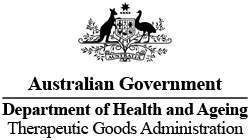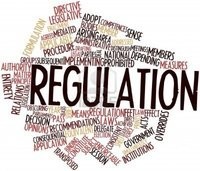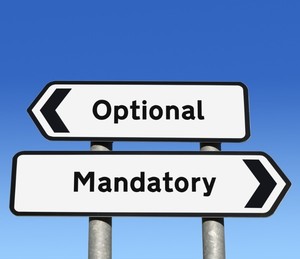Last update: 5 January 2018
The regulatory body for therapeutic goods in Australia is the Therapeutic Goods Administration (TGA).
 0
Post your comment
0
Post your comment
Last update: 5 January 2018
The regulatory body for therapeutic goods in Australia is the Therapeutic Goods Administration (TGA).

TGA is a division of the Australian Government Department of Health and Ageing, and is responsible for regulating therapeutic goods including medicines, medical devices, blood and blood products.
TGA administers the Therapeutic Goods Act 1989. This legislation provides a framework for a risk management approach that allows the Australian community to have timely access to therapeutic goods which are consistently safe, effective and of high quality.
TGA carries out a range of assessment and monitoring activities to ensure therapeutic goods available in Australia are of an acceptable standard with the aim of ensuring that the Australian community has access, within a reasonable time, to therapeutic advances.
In Australia, the European Union (EU) guidelines were adopted in August 2008 [1]. And on 30 July 2013, the TGA published its own guidance on the evaluation of biosimilars:
Evaluation of biosimilars
Effective date: 1 July 2013
http://www.tga.gov.au/industry/pm-argpm-biosimilars-00.htm
In addition, Australia has adopted the following guidelines from the EU on similar biological medicinal products.
1. Overarching guidelines
These guidelines cover all biosimilar products:
Guideline on similar biological medicinal products CHMP/437/04 Rev 1
TGA Effective date: 22 May 2015
www.ema.europa.eu/docs/en_GB/document_library/Scientific_guideline/2014/10/WC500176768.pdf
Guideline on similar biological medicinal products containing biotechnology-derived proteins as active substances: non-clinical and clinical issues EMEA/CHMP/BMWP/42832/2005 Rev1
Under public consultation, effective date: 1 July 2015
TGA Effective date: 22 May 2015
www.ema.europa.eu/docs/en_GB/document_library/Scientific_guideline/2015/01/WC500180219.pdf
2. Specific guidelines
These guidelines are specific to the type of biosimilar product:
Recombinant erythropoietins EMEA/CHMP/BMWP/94526/2005 Corr.
Effective date: 29 September 2006
www.tga.gov.au/pdf/euguide/bmwp9452605en.pdf
Revision of 2008. EMEA/CHMP/BMWP/301636/2008 not yet adopted by TGA.
Effective date: 1 October 2010
www.ema.europa.eu/docs/en_GB/document_library/ Scientific_guideline/2010/04/WC500089474.pdf
Recombinant G-CSF EMEA/CHMP/BMWP/31329/200
Effective date: 29 September 2006
www.tga.gov.au/pdf/euguide/bmwp3132905en.pdf
Recombinant human insulin EMEA/CHMP/BMWP/32775/200
Effective date: 12 September 2006
www.tga.gov.au/pdf/euguide/emea3277505en.pdf
Low molecular weight heparins EMEA/CHMP/BMWP/118264/2007
Effective date: 5 August 2009
www.tga.gov.au/pdf/euguide/bmwp11826407en.pdf
Somatropin EMEA/CHMP/BMWP/94528/2005
Effective date: 29 September 2006
www.tga.gov.au/pdf/euguide/bmwp9452805en.pdf
Recombinant interferon alpha EMEA/CHMP/BMWP/102046/2006
Effective date: 17 December 2010
www.tga.gov.au/pdf/euguide/chmp10204606enfin.pdf
3. Specific guidelines – not yet adopted
TGA has the following guidelines published for information only for specific biosimilar products. These guidelines have not yet been adopted by the TGA.
Monoclonal antibodies EMEA/CHMP/BMWP/403543/2010
Under public consultation, effective date: 1 December 2012
http://www.ema.europa.eu/docs/en_GB/document_library/Scientific_guideline/2012/06/WC500128686.pdf
4. Other guidelines
Other guidelines relevant for biosimilars from the EMA include:
Immunogenicity assessment of biotechnology-derived therapeutic proteins
EMEA/CHMP/BMWP/14327/2006
Effective date: 22 June 2009
www.tga.gov.au/pdf/euguide/bmwp1432706en.pdf
Comparability of Biotechnology-Derived Medicinal Products after a change in the Manufacturing Process - Non-Clinical and Clinical Issues
CHMP/BMWP/101695/06
Effective date: 8 April 2009
www.tga.gov.au/pdf/euguide/bmwp10169506en.pdf
5. Other guidelines – not yet adopted
TGA has the following guidelines published for information only. These guidelines have not yet been adopted by the TGA.
Immunogenicity assessment of monoclonal antibodies intended for in vivo clinical use EMEA/CHMP/114720/2009
Under public consultation, effective date: 15 July 2009
End of consultation: 28 May 2014
http://www.ema.europa.eu/docs/en_GB/document_library/Scientific_guideline/2012/06/WC500128688.pdf
Related articles
Biosimilars approved in Australia
Global biosimilars guideline development – EGA’s perspective
Reference
1. GaBI Online - Generics and Biosimilars Initiative. Global biosimilars guideline development – EGA’s perspective [www.gabionline.net]. Mol, Belgium: Pro Pharma Communications International; [cited 2018 Jan 5]. Available from: www.gabionline.net/Guidelines/Global-biosimilars-guideline-development-EGA-s-perspective
Permission granted to reproduce for personal and non-commercial use only. All other reproduction, copy or reprinting of all or part of any ‘Content’ found on this website is strictly prohibited without the prior consent of the publisher. Contact the publisher to obtain permission before redistributing.
Copyright – Unless otherwise stated all contents of this website are © 2015 Pro Pharma Communications International. All Rights Reserved.
Source: TGA
EU accepts results from FDA GMP inspections for sites outside the US
WHO to remove animal tests and establish 17 reference standards for biologicals
The best selling biotechnology drugs of 2008: the next biosimilars targets
Global biosimilars guideline development – EGA’s perspective
Directriz estadounidense para eliminar los estudios comparativos de eficacia de los biosimilares
Canadá se dispone a eliminar el requisito de ensayos de fase III para los biosimilares
Un nuevo decreto promueve los medicamentos biosimilares fabricados en Argentina
Avances en los planes de la EMA para agilizar la evaluación de biosimilares





Post your comment